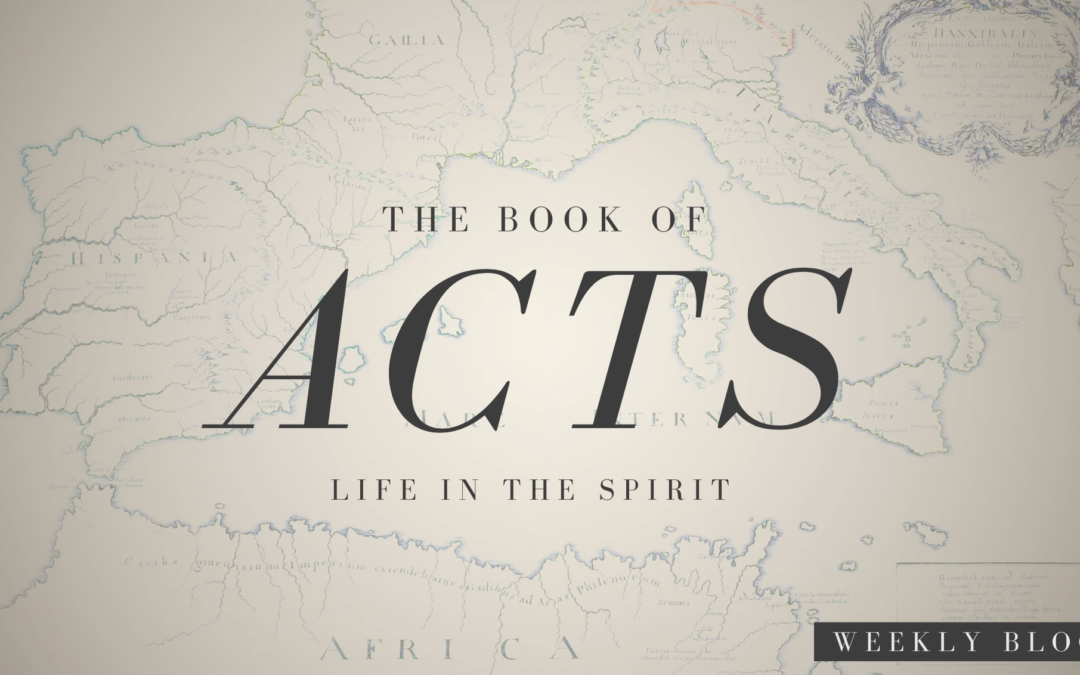LIFE IN THE SPIRIT: Acts—Week 3 (Planting)
Acts 4:1-31
We are in a study of the book of Acts, focusing on the Person of the Holy Spirit—a co-equal Member of the Godhead with the Father and the Son—and how He empowered, inspired, led, and molded ordinary men and women into a movement that turned the world upside down, and how He continues to do so today. Throughout Scripture, God and His work is described in agricultural terms. In Genesis 2, we see God purposefully plant a garden in Eden in which Adam and Eve are intended to dwell. In 2 Samuel 7:10, God describes how He will plant Israel in their appointed place so that they will no longer be disturbed. In Luke 10:2, God is described as the Lord of the Harvest. In John 15:1, God the Father is described as the vinedresser. Accordingly, this week will examine the work of the Holy Spirit in planting.
In Week 1 of our study, we looked at several of the promises Jesus made about the Holy Spirit in John chapters 13-16. Two of those promises are of particular importance this week. The first promise is found in John 14:25-26, where Jesus promises that the Holy Spirit will teach them all things and remind them of Jesus’ teachings. In Acts 4, we see this promise being fulfilled. Peter and John, being filled with the Holy Spirit, proclaim the gospel with boldness, power, and authority. As Scripture notes, these men were uneducated and lacked specialized religious training. However, what they did have was the Holy Spirit planting His truth in their hearts and equipping them to proclaim the gospel with confidence. While we should always be careful to heed Paul’s admonition in 2 Timothy 2:15 to study to show ourselves approved and rightly handle God’s Word, we must never use that admonishment as an excuse to not share the gospel. We must remember that our fruitfulness in proclaiming the gospel is more a function of our willingness to proclaim than it is our training in proclaiming.
The second key promise is found in John 16:5-11. In these verses, Jesus promises that the Holy Spirit will plant conviction of sin in the hearts of men and women. As we are faithful to proclaim the gospel in the power of the Holy Spirit, that same Spirit works in the hearts of the hearers to bring conviction and repentance. Thus, we see Peter and John, two very flawed and ordinary men, speak with power and authority—not because of who they are but because of the Holy Spirit’s power—and we see 5,000 men respond and believe because of the conviction planted in their hearts by the Holy Spirit. No wonder those opposing them were astonished.
The fields are still white unto the harvest. The Lord of the harvest is still looking for workers. The Holy Spirit is still empowering believers and bringing conviction of sin wherever the gospel is proclaimed. In fact, more people came to Christ worldwide last year than at any point in human history. Yet, it doesn’t seem to be happening that way in the West. To be clear, that isn’t a God problem; it’s an “us” problem. I’m afraid that maybe we’ve gotten our priorities out of whack. Maybe we’re a bit too focused on our miracle, our breakthrough, our blessing, and we’re blind to the harvest all around us. I truly believe that if we are willing to be faithful with the truth the Holy Spirit has planted in our hearts, we too can astound the opposition with the harvest that will come.
Questions:
- Why do you think God uses so many agricultural metaphors to describe His work? Was it merely to speak to an agrarian society, or might there be some deeper theological implications?
- When Jesus described the Father as the Lord of the harvest in Luke 10, He said the harvest was already ripe and ready to be gleaned. What are the implications of that statement? What does that say about our role in seeing folks saved versus God’s role? How might such a statement alleviate our anxieties about sharing the gospel?
- Have you ever struggled with sharing your faith because you felt intimidated or because you were afraid you might not have the answers to a question you’d be asked? How might this week’s theme help you with such fears?






